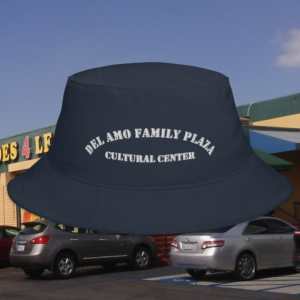Click here to donate to The Family of Brandon Boyd
On December 10, 2024, the Long Beach City Council heard powerful and heart-wrenching testimonies from the family and friends of Brandon Boyd, a man whose life was cut short during a mental health crisis. The tragic event has sparked outrage, grief, and calls for accountability within our community.
A Family’s Pain and Advocacy
Tiffany Boyd, Brandon’s sister, addressed the council with an emotional and poignant speech. As both his sibling and a seasoned child welfare advocate, she shared a perspective deeply rooted in personal loss and professional understanding of systemic failures. Her words underscored a stark reality: despite her extensive connections and experience, none of it could save her brother in his most vulnerable moment.
“Men do cry, men do hurt,” she reminded the council, emphasizing the fragility of mental health and the importance of human decency in crisis situations. She acknowledged the systemic gaps that leave families like hers powerless and highlighted the urgent need for culturally relevant solutions in mental health responses.
The Tragic Night
On the night of Brandon’s death, he was sitting on church steps, visibly distressed. Despite the presence of his family, friends, and trained professionals offering assistance, the Long Beach Police Department chose to escalate the situation. They employed military-grade equipment and, according to the family, ignored protocols designed to de-escalate potential suicide-by-cop situations.
The use of a flash grenade and subsequent actions by police have drawn widespread condemnation. Brandon’s family described the officers’ decisions as impulsive and unnecessary, leading to a permanent tragedy based on temporary emotions.
Calls for Transparency and Accountability
Central to the family’s demands is the release of all body cam footage from that night. While the police department shared 17 minutes of edited footage, two hours remain unreleased. This lack of transparency has fueled mistrust and further grief for the family, who believe the full footage could reveal critical details about what happened.
“Brandon was never the aggressor,” his family asserted, painting a picture of a man who was kind, protective, and deeply loved. They called for the officers involved to be held accountable and for the city to ensure such a tragedy never happens again.
A Community in Mourning
The Boyd family’s testimony resonated deeply with the community, but seemingly not the city council. Council members acknowledged the emotional toll of the incident and pledged to provide resources to help residents cope with the trauma. However, words of condolence are not enough. The community is demanding action—real, tangible steps to address systemic issues in law enforcement and mental health response.
Moving Forward
The tragedy of Brandon Boyd’s death is a stark reminder of the work that remains to be done in Long Beach and beyond. His family’s courage in sharing their pain and advocating for justice is a call to action for all of us. It is a plea to ensure that no other family endures such a devastating loss and that every individual in crisis is met with compassion, not force.
As we grieve with the Boyd family, let us also stand with them in their pursuit of justice and systemic change. Together, we can honor Brandon’s legacy by building a community where mental health crises are met with care, understanding, and humanity.








